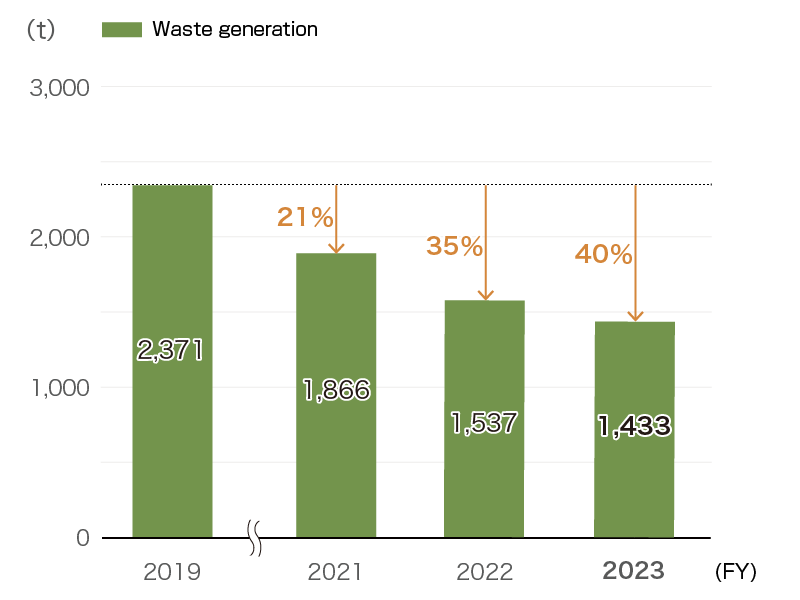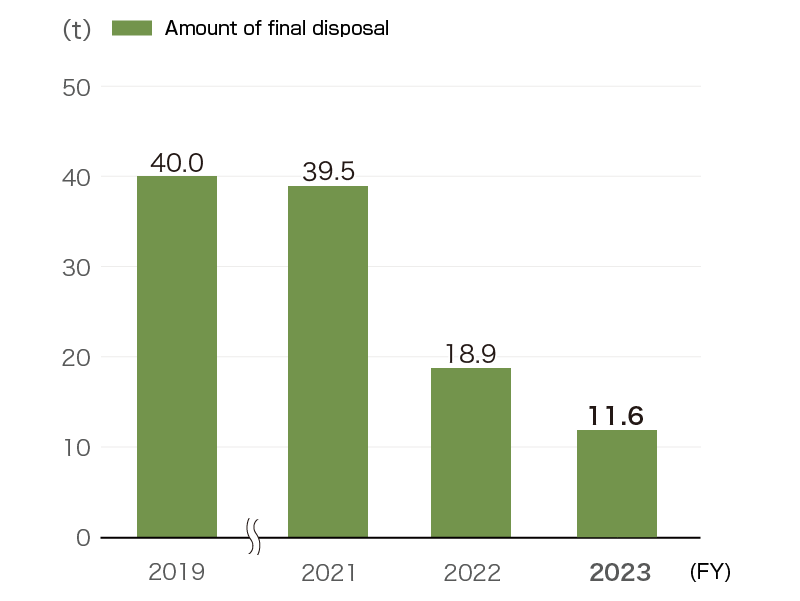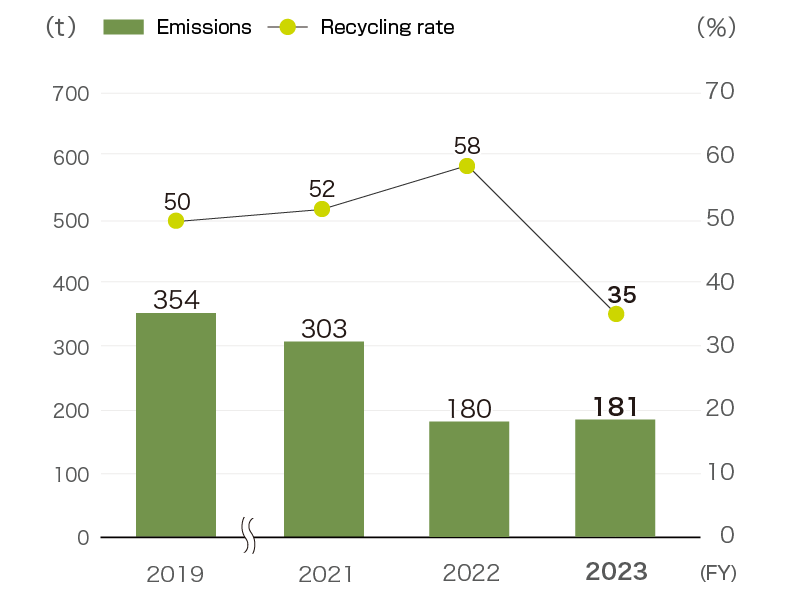
Environment Initiatives to Reduce Waste and Recycle Resources
Pollution of the natural environment by waste and the resulting impact on ecosystems have become problematic, and efforts to recycle resources will help curb environmental destruction and reduce waste while making a major contribution to the protection of the global environment.
Under the Medium-Term Environmental Action Plan 21-25, Mitsubishi Tanabe Pharma Group has set the goal of reducing the volume of waste generated and the amount of final waste disposed, to this end, we are advancing the “3Rs (Reduce, Reuse, Recycle) + Renewable” from the standpoint of correct handling and effective resource use with the aim of realizing a circular economy.
Waste reduction targets (Domestic)
- 30% reduction in waste generated by fiscal 2025 compared to fiscal 2019
- 50% reduction in final waste disposal by fiscal 2025 compared to fiscal 2019
Proper Management of Waste
As a waste-discharging enterprise, the Group properly implements and manages the conclusion of agreements with contractors for waste collection, conveyance and processing, the management of electronic manifests, and on-site confirmation of disposal contractors.
We choose waste disposal contractors who proactively recycle resources, conduct on-site confirmation before concluding these contracts, and evaluate whether disposal consignment is possible.
In fiscal 2023, waste generated by the domestic Group was 40% less than in fiscal 2019 and final disposal was 71% less than in fiscal 2019, achieved through thorough sorting of waste as well as improvements to some of our calculation methods. The recycling rate was 63%. We will continue to evaluate measures to promote recycling, including revision of processing methods and vendor selection.
Furthermore, we will continue to implement initiatives to minimize waste, such as switching from disposal to sale of idle equipment and solvents recovered from manufacturing processes, and in fiscal 2023, we processed 344 tons as valuable materials.
Amount of waste generated (domestic)

Amount of final waste disposed (domestic)

Reduction of Plastic Consumption and Promotion of Recycling
In recent years, environmental pollution caused by the discharge and long-term accumulation of plastic waste in the ocean has become a major global problem. Additionally, disposal (incineration) of fossil-based plastics has been demonstrated to increase greenhouse gas emissions. In the Group, we are considering improving the plastic materials used for packaging pharmaceuticals, with a view to improving our measures towards environmental problems associated with these plastics.
According to partially revised calculation methods, the ratio of plastic waste generated by the domestic Group recycled in fiscal 2023 deteriorated to 35% (fiscal 2019: 50%). Looking to the future, we will continue to evaluate methods of further increasing the recycling rate, including material recycling of waste sheets of PTP.
The Group has proper management in place, in accordance with the Law Concerning the Promotion of Resource Circulation for Plastics, enacted on April 1, 2022. Emissions from the Company and the Group in fiscal 2023 were as shown in the following diagram. (Mitsubishi Tanabe Pharma Corporation: 47 tons, Mitsubishi Tanabe Pharma Factory Ltd.: 134 tons)
Waste plastic emissions and recycling rate (domestic)

